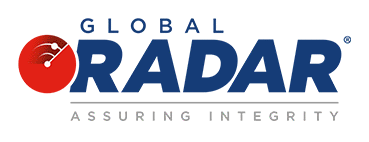Up until now, the burden of regulatory compliance within the financial spectrum has fallen almost solely on financial institutions both domestically and abroad. Lawmakers designed regulations for banks and lenders to closely follow in order to create safeguards that would better prevent money laundering and other illicit and oft-destabilizing financial activity. If an institution fails to comply with these regulations or fell short in respect to keeping up with all provisions, they are essentially held responsible for any illegal currency that they had a part in moving – knowingly or not – and face staunch penalties that can include fines and potential blacklisting. While these efforts have brought the discussion on regulatory compliance to the forefront across the global financial sector and have led to significant change in the way financial service providers have conducted business over the past two decades, many, including the United States government, have sought even more tangible results with respect to hindering white-collar crime. This has been further compounded by the Pandora Papers scandal which exposed that aside from traditional banks, there are countless other players involved in cross-border money laundering efforts. These other “enablers” are exactly who the U.S. Treasury Department is now targeting to crack down on money laundering.
The Pandora Papers were an unprecedented leak of the personal financial information of many of the world’s most rich and powerful individuals resulting in 6.4 million documents, nearly three million images, over one million emails, and half a million spreadsheets falling into the hands of journalists from across the globe. Since 2016, the leak itself has been under investigation by the International Consortium of Investigative Journalists (ICIJ) and more than 100 media partners, the goal of which being to expose political corruption and shady dealings of the world’s elite. Shrouded by a gross lack of transparency brought about through the misuse of shell companies, trusts, foundations and other entities in low or no-tax jurisdictions, those implicated in the Papers were found to have concealed their identities from the general public as well as regulators, allowing for illicit financial flows to cross borders and the criminals behind them to effectively launder their ill-gotten gains. In early May, Global RADAR chronicled the release of the final collection of intel by the ICIJ and pervasive threats to global financial integrity by highlighting the various actors that played roles in these crimes.
In the field of psychology, “enablers” are described as those whose behaviors allow someone to continue self-destructive patterns of behavior. This description has been adopted by U.S. lawmakers and financial regulators and labeled onto those individuals or organizations outside of financial institutions that play a role in facilitating money laundering. So who exactly are these enablers? Well, they’ve historically come in various forms including financial advisers, art and antiquities traders, real estate agents, lawyers, and trust companies – just to name a few. Unlike banks, which are held accountable, these other individuals and organizations do not share an equal responsibility in performing adequate due diligence for preventing money laundering by properly vetting their clients for suspicious activity. This creates a wide loophole – one that has long been criticized by international authorities and financial watchdogs – for financial criminals to still move their ill-gotten funds without fear of apprehension.
Efforts to improve these deficiencies appear to be in the works however. In a recently announced bipartisan effort from Congress, U.S. lawmakers have aimed to extend appropriate due diligence requirements to the above mentioned fields through a novel piece of legislation coined the “Enablers Act.” The Act is a bill that will amend the now 52-year-old Bank Secrecy Act (BSA), expanding the definition of a financial institution for purposes of reporting suspicious transactions, AML programs, and other related measures.2 Such a modification will ultimately require the aforementioned multitude of financial parties to investigate their clients and confirm sources of money and assets that these entities are attempting to move within the American financial system. Should it ultimately pass, the legislation will be the most significant piece of money laundering reform since the USA Patriot Act of 2001. “Middlemen in foreign transactions should be subject to the same anti-money laundering checks as banks, and this brings us one step closer,” said Rep. Joe Wilson (R-S.C.), who co-led the push to enact the Enablers Act, along with Rep. Tom Malinowski (D-N.J.), and sponsored its inclusion in the defense bill. “Nobody should be able to hide behind blood money to exploit democratic institutions for their benefit.”1
All told, the bill is being presented as part of a package with the National Defense Authorization Act (NDAA), a broader national defense policy bill that is re-examined and passed by Congress on an annual basis. This ensures that Enablers Act will more than likely be voted on before the end of this year (2022). The move also comes shortly after another groundbreaking move – the passing of the U.S. Corporate Transparency Act (CTA) – which aimed to limit the misuse of shell companies for laundering money across the U.S. by requiring companies to report their true beneficial ownership structures to the Treasury Department’s Financial Crimes Enforcement Network (FinCEN). With these two measures in place, the U.S. government effectively closes two of the most significant money laundering loopholes that have been available for abuse by sanctions evaders, financial criminals, and terror organizations and should increase transparency across the financial sector and beyond for years to come. Congressman Malinowski summed up the proceedings perfectly in stating “It’s way too easy to use accounting firms, lawyers and others to launder money in ways that are hard for our sanctions enforcement agencies to see…By proposing very simple, straightforward due diligence requirements, we exponentially increase the effects of [our] sanctions program.”1
Citations
- Fitzgibbon, Will. “House Committee Advances ‘Once in a Generation’ Crackdown on Enablers of Financial Crime.” ICIJ, 29 June 2022.
- “H.R.5525 – ENABLERS Act.” 117th Congress (2021-2022), 8 Oct. 2021.

